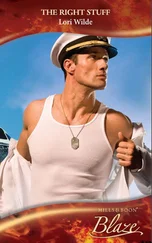Tom Wolfe - The Right Stuff
Здесь есть возможность читать онлайн «Tom Wolfe - The Right Stuff» весь текст электронной книги совершенно бесплатно (целиком полную версию без сокращений). В некоторых случаях можно слушать аудио, скачать через торрент в формате fb2 и присутствует краткое содержание. Жанр: Современная проза, на английском языке. Описание произведения, (предисловие) а так же отзывы посетителей доступны на портале библиотеки ЛибКат.
- Название:The Right Stuff
- Автор:
- Жанр:
- Год:неизвестен
- ISBN:нет данных
- Рейтинг книги:3 / 5. Голосов: 1
-
Избранное:Добавить в избранное
- Отзывы:
-
Ваша оценка:
- 60
- 1
- 2
- 3
- 4
- 5
The Right Stuff: краткое содержание, описание и аннотация
Предлагаем к чтению аннотацию, описание, краткое содержание или предисловие (зависит от того, что написал сам автор книги «The Right Stuff»). Если вы не нашли необходимую информацию о книге — напишите в комментариях, мы постараемся отыскать её.
The Right Stuff — читать онлайн бесплатно полную книгу (весь текст) целиком
Ниже представлен текст книги, разбитый по страницам. Система сохранения места последней прочитанной страницы, позволяет с удобством читать онлайн бесплатно книгу «The Right Stuff», без необходимости каждый раз заново искать на чём Вы остановились. Поставьте закладку, и сможете в любой момент перейти на страницу, на которой закончили чтение.
Интервал:
Закладка:
Deke Slayton took pride in the fact that he was in the hot branch of flight test at Edwards, which was Fighter Operations. The pilots in Fighter Ops at Edwards pushed the outsides of the envelopes of the hottest new airplanes made, the most recent examples being the Century series, of which Gordo's F-106B was one. But to be in engineering was to be an also-ran. Gus and Gordo remained friends and even did some rat-racing in their cars together and, later on, in speedboats. He was so friendly and easygoing, it was hard not to like the man. But sometimes Gus would cluck and fume over Gordo's yarns, too.
And none of this fazed Gordo in the slightest! He seemed to be oblivious of it all! He just went on drawling and lollygagging along as if he were sitting in the catbird seat the whole time! He was also given to sounding off now and then in ways the rest of them just couldn't comprehend. Like that business of the flight pay!
The truth was that none of them, not even Gus, who knew him fairly well, understood Cooper's particular makeup. Cooper may have had his blind spots, but if so, it was the blindness of the fighter jock resolutely making his way up the mighty ziggurat. So what if, by outward standards, he had not had the most brilliant career of all the seven astronauts? The day was young! He was only thirty-two! Cooper's fighter jock self-esteem seemed to be like a PAR lamp. It was as if wherever he landed, the light shone round about him, and that was the place to be. Cooper knew as well as anyone else that it was more prestigious to be in Fighter Ops than in engineering at Edwards. But once he was in engineering, the light shone round about him, and the picture of him in that place was good. As a pilot in engineering you saw the project from both sides, from the design and administrative side as well as from the test pilot's side. It was like being a project manager who also flew… that was what it was like… Much of Cooper's fireproof confidence was based on the fact that he was "a natural-born stick-and-rudder man," as the phrase went. When it came to sheer aplomb in controlling a winged aircraft, there was probably no other astronaut who could outdo him. His father had been a colonel in the old Army Air Force, a career officer, and Cooper had started flying before he was sixteen. He had met his wife, Trudy, at Hickam Field after he had enrolled in the University of Hawaii. She was also a pilot. Flying as like breathing to Cooper. He seemed to feel absolutely immune to the ordinary dangers of flight; in any event, he was absolutely cool when it came to dealing with them. As far as his career went, he was never troubled by doubts. It was only a matter of time before everything would go his way. Of that he seemed to be convinced.
When the tests for selection of astronauts began at Lovelace and Wright-Patterson… well, it was obvious, wasn't it? Everything was now going his way. He never had the slightest doubt that he would be chosen. His relative lack of credentials didn't trouble him at all. He would be chosen! He could tell! When it came to things like the rigors of the physical tests at Lovelace, he went through it all with a knowing wink. Things like scuttling down a corridor with barium exploding out of your tail—he figured it was intentionally set up as part of the stress testing. Nothing to it, once you understood the drill. Stress? He was so relaxed, the psychologists giving the stress tests at Wright-Patterson could hardly believe it. As soon as the tests at Wright-Pat were completed, Cooper told his commanding officer at Edwards that he had better look for a replacement for him. He was going to be chosen as an astronaut. This was more than a month before the choices were actually made.
Cooper turned out to be neither so naive nor so guileless as some thought. From the beginning, in the interview sessions, the NASA psychologists had asked the candidates for astronaut many questions about their family lives. Quite aside from any possible public-relations considerations, there was a well-known theory in the psychology of flight to the effect that marital discord was a major cause of erratic behavior among pilots and often led to fatal accidents. The sound instincts of the career officer led Cooper to respond that his family life, with Trudy and the children, was real fine, terrific; regulation issue. This wasn't likely to bear much checking into, however, inasmuch as Cooper and Trudy were not living in the same house or even in the same latitude. They had separated; Trudy and the children were living down near San Diego, while he remained at Edwards. Clearly it was time for a reconciliation. Cooper took a quick trip to San Diego… he talked a whole rope… a veritable lasso… the separation, his prospects with NASA, and so on… In any case, Trudy and their two daughters returned to Edwards, and Cooper had the American dream back intact, under one roof, before the final round of the selection process, and nobody at NASA was the wiser.
After Cooper was selected, one of the Life writers brought up the point that he had less experience than most of the other astronauts. Cooper was not fazed for a moment. He said that he was also younger than the others and would probably be the only one of them to fly to Mars.
The only side of the whole deal that appeared to shake Cooper's confidence was the p.r. side of it, the publicity routine, the trips here and there, where various local worthies put you at the head table and whacked you on the back and asked you to get up and "just say a few words." Most of the trips were to cities where components of the Mercury system were being manufactured, such as St. Louis, where the capsule was being built at the McDonnell factory, or San Diego, where the Atlas rocket was being built at Convair. St. Louis, San Diego, Akron, Dayton, Los Angeles—somebody was always suggesting that you "just say a few words."
It was on such occasions that a man realized most acutely that America's seven astronauts were not by any means identical. Glenn seemed to eat this stuff up. He couldn't get enough grins or handshakes, and he had a few words filed away in every pocket. He would even come back to Langley and write cards to workers he had met on the assembly line, giving them little "attaboys," as if they were all in this thing together, partners in the great adventure, and he, the astronaut, would never forget his, the welding inspector's, beaming mug. The idea, much encouraged by NASA, was that the personal interest of the astronaut would infuse everyone working for the contractors with a greater concern for safety, reliability, efficiency.
Oddly enough, it seemed to work. Gus Grissom was out in San Diego in the Convair plant, where they were working on the Atlas rocket, and Gus was as uneasy at this stuff as Cooper was. Asking Gus to "just say a few words" was like handing him a knife and asking him to open a main vein. But hundreds of workers are gathered in the main auditorium of the Convair plant to see Gus and the other six, and they're beaming at them, and the Convair brass say a few words and then the astronauts are supposed to say a few words, and all at once Gus realizes it's his turn to say something, and he is petrified. He opens his mouth and out come the words: "Well… do good work!" It's an ironic remark, implying: "… because it's my ass that'll be sitting on your freaking rocket." But the workers started cheering like mad. They started cheering as if they had just heard the most moving and inspiring message of their lives: Do good work ! After all, it's Little Gus's ass on top of our rocket! They stood there for an eternity and cheered their brains out while Gus gazed blankly upon them from the Pope's balcony. Not only that, the workers—the workers, not the management but the workers!—had a flag company make up a huge banner, and they strung it up high in the main work bay, and it said: DO GOOD WORK.
Читать дальшеИнтервал:
Закладка:
Похожие книги на «The Right Stuff»
Представляем Вашему вниманию похожие книги на «The Right Stuff» списком для выбора. Мы отобрали схожую по названию и смыслу литературу в надежде предоставить читателям больше вариантов отыскать новые, интересные, ещё непрочитанные произведения.
Обсуждение, отзывы о книге «The Right Stuff» и просто собственные мнения читателей. Оставьте ваши комментарии, напишите, что Вы думаете о произведении, его смысле или главных героях. Укажите что конкретно понравилось, а что нет, и почему Вы так считаете.











